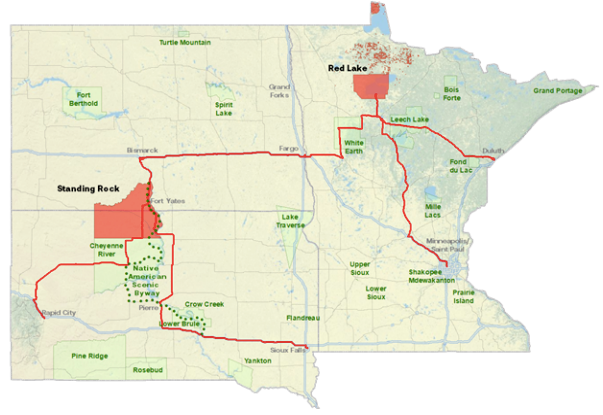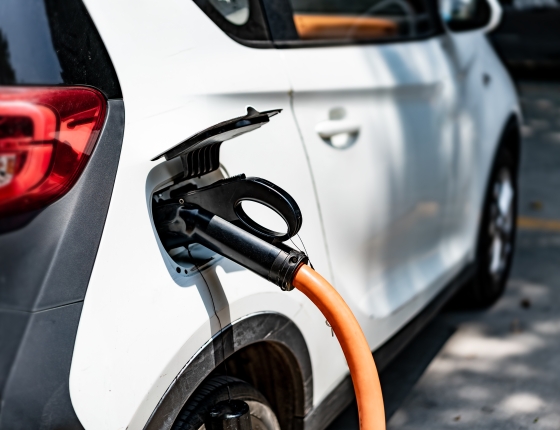Update: July 2023
This summer, six Level 2 chargers will be installed for the project: three in Red Lake Nation and three in Standing Rock Nation. The team will implement chargers in Red Lake, Redby, Ponemah, McLaughlin, Fort Yates, and Mobridge. The team selected sites for the chargers based on their accessibility to as much of the public as possible, such as businesses like grocery stores, gas stations, casinos, and schools. Management of the chargers will be handed over to local community organizations, so that funds accrued from service will be invested back in the communities. After the new chargers are verified operational, the team will update common EV charger databases.
Overview
This project will broaden use and access to electric vehicles (EV) for Tribal communities in the Upper Midwest by deploying and assessing EVs, charging infrastructure, and outreach. The project team will also create a template based off their findings so that other communities can replicate this work. CEE will lead analysis of EV use and charging infrastructure metrics to quantify emissions reductions and the total cost of operation.

Project Summary
Objective
- Develop plug-in EV charging infrastructure within Tribal communities and on major travel routes.
- Deploy, assess, and optimize use of plug-in EVs by Tribal governments, utilities, schools, and businesses.
Scope
- Install 59 DCFC hubs and 63 Level 2 charging stations, and ensure that all 23 Native Nations in ND, SD, and MN have at least one Level 2 charging station.
- Distribute at least 19 EVs for use by Tribal governments, utilities, schools, and businesses.
- Host 52 outreach events and 2 new workforce training programs to reach more than 10,000 attendees with support on EV use.
Non-energy benefits
- Overcome historic transportation and economic inequities by introducing the newest EV technology and charging infrastructure with support.
- Document the cost benefits, utility, and air quality improvements that EVs can offer rural drivers and Tribal Nations.
- Serve as a resource for other Tribal Nations and rural communities seeking to address transportation, economic, and social inequities.
